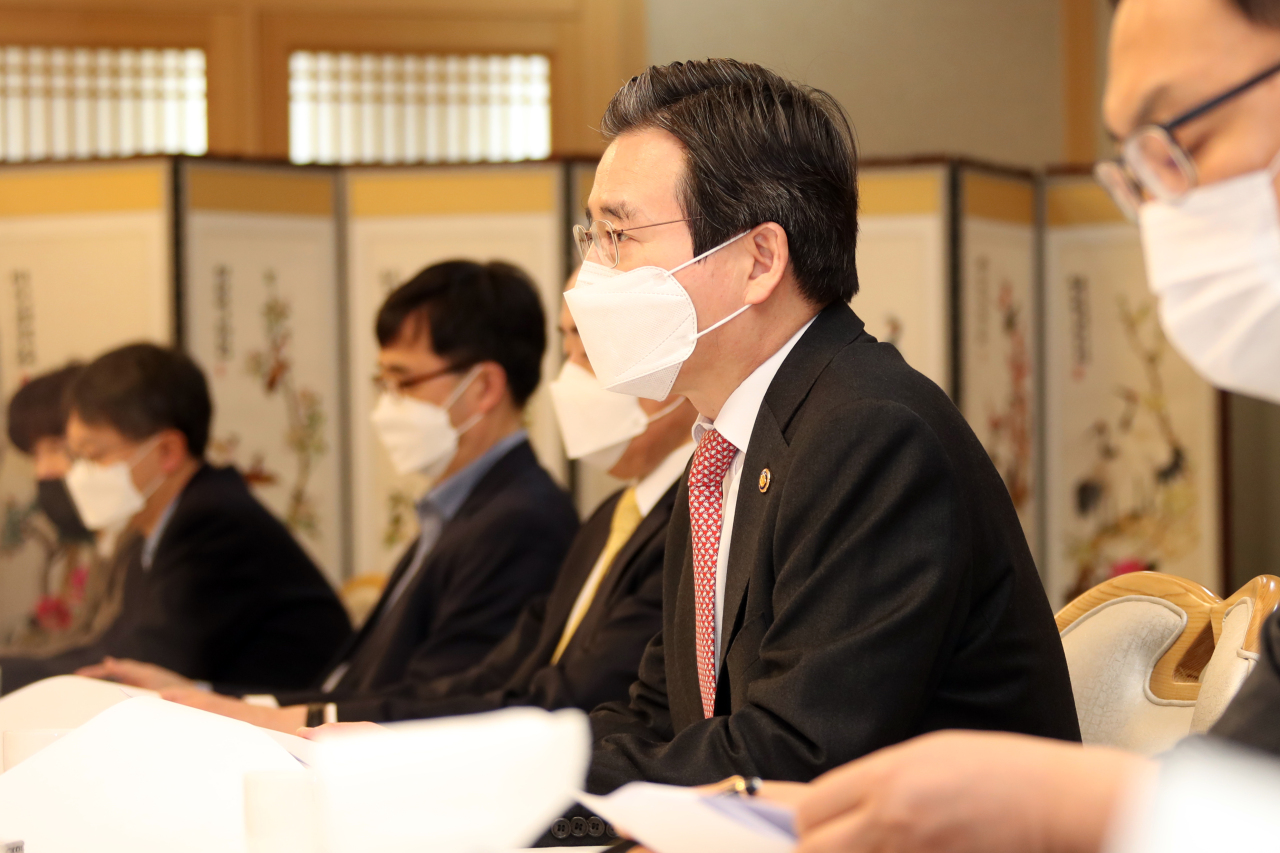Vice minister warns of inflation risks amid rising oil prices, farm products
By Choi Jae-heePublished : March 5, 2021 - 14:43

South Korea’s vice finance minister on Friday warned of possible drivers of inflation, including rising oil prices and farm products, vowing efforts to closely monitor a potential surge in consumer prices.
“The consumer price index has continued an upward trend from 0.6 percent in January to 1.1 percent last month, largely due to gains in global oil prices and farm products,” said Vice Finance Minister Kim Yong-beom during an economic meeting.
“There seems to be a limited possibility that consumer prices sharply rise in the short term due to the prolonged economic fallout from the COVID-19 resurgence, but we should not overlook growing inflation pressures.”
The country‘s inflation remains subdued in the wake of COVID-19 pandemic, but prices of agricultural products surged 21.3 percent last month, due to short supplies of vegetables and fruits amid cold spells. Also, prices of eggs gained 41.7 percent amid the outbreak of bird flu, according to Statistics Korea.
Meanwhile, on the back of global growth optimism thanks to vaccine developments, the price of South Korea’s benchmark Dubai crude rose to a record high of $62.70 per barrel last month, driving the nation’s gasoline retail prices to remain above 1,400 won per litter for the 14th consecutive week, industry data showed.
Along with rising agricultural goods and oil prices, pent-up consumer demand is likely to explode based on expectations for economic recovery driven by COVID-19 vaccine rollout, which could further raise consumer prices, according to the Ministry of Economy and Finance.
Inflation occurs when prices of goods and services rise, while purchasing power falls over a certain period. The Korean government considers 2 percent of consumer price index or more as a key indicator of inflation.
To prevent rising consumer prices from placing further pressure on people‘s livelihoods, already reeling from the virus resurgence, Kim vowed to “closely monitor inflation risks to come up with countermeasures against price increases.”
He also called on parliament to swiftly approve this year’s first extra budget bill designed to finance the fourth round of emergency relief funds for small business owners and the underprivileged hit hard by the pandemic.
On Tuesday, the government proposed a supplementary budget of 15 trillion won ($13.3 billion) to the National Assembly, the third-largest budget ever, in a move to counter the protracted COVID-19 impact on the local economy.
By Choi Jae-hee (cjh@heraldcorp.com)








![[KH Explains] How should Korea adjust its trade defenses against Chinese EVs?](http://res.heraldm.com/phpwas/restmb_idxmake.php?idx=644&simg=/content/image/2024/04/15/20240415050562_0.jpg&u=20240415144419)











![[Today’s K-pop] Stray Kids to return soon: report](http://res.heraldm.com/phpwas/restmb_idxmake.php?idx=642&simg=/content/image/2024/04/16/20240416050713_0.jpg&u=)